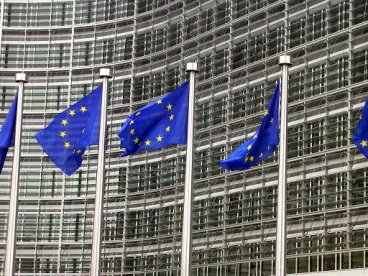Margrethe Vestager, former Deputy Prime Minister of Denmark, is designated to become the next EU Competition Commissioner in November 2014. The EU Competition Commissioner is a powerful figure in Europe, as witnessed by the large cartel fines, investigations concerning novel questions in the high-tech, finance and pharmaceutical sectors, the prohibition of a number of high profile mergers and investigations into potential subsidies of EU Member States’ tax regimes, to name just a few examples.
Ms Vestagers’ appointment is subject to confirmation by the European Parliament (EP). In a three hour evening hearing before the EP last night (2 October), Ms Vestager answered the EP’s questions and revealed a number of issues that she would like to focus on during her five year term of office.
In general terms, Ms Vestager confirmed the importance of competition policy to Europe. She noted, “I do not see the competition portfolio as a lonely portfolio. On the contrary, competition is central to the things we want to create both in and for Europe”. Ms Vestager will work under the supervision of, amongst others, the Vice-President of the Commission responsible for Jobs, Growth, Investment and Competitiveness, Jyrki Katainen. Ms Vestager’s office will also play one of the key roles in achieving the goals set by the president of the new Commission, Jean-Claude Juncker, namely the integration of energy, technology and capital markets in Europe.
Specifically, Ms Vestager vowed to resist pressure from the Member States for protectionism and politicisation, and to keep EU competition policy in line with market realities, adhering to the latest economic and legal thinking. She promised to enforce competition law with neutrality, impartiality and rigour and to listen to all stakeholders (big and small), stressing that she will make independent decisions based on rule of law and sound economic analysis.
Sectors of Focus
Digital economy was the first sector to be mentioned last night and came up repeatedly throughout the hearing. It is evident that this will be one of Ms Vestager’s priorities, in line with her intent to appoint to her Cabinet Lindsay McCallum, who is currently a senior official focusing on technology markets in the EU Commission’s Directorate General for Competition.
Ms Vestager likewise expressed concern over “big data”, stating that she intends to work closely with the EP and Commissioner responsible for data protection to ensure that competition policy is not falling behind in this important new area of economy.
Heated discussions followed, focusing on the energy, banking and financial sectors. Ms Vestager stated that, in relation to the energy sector, she will work closely with her fellow Commissioners for Energy and Environment. By doing so she acknowledges that the “competition tool box” is only one element involved in achieving the very important goal of a truly competitive EU energy market and, ultimately, a single EU energy union.
Whilst acknowledging that regulation should only be used in the instances of severe market failure, Ms Vestager noted that the proposed regulation in the card payment market is a good example where regulation is required.
State Aid: Tax Investigations and The Banking Sector
State aid is a serious concern for Member States, and a large number of questions from the EP naturally focused on this area. In particular, many questions were raised in relation to the tax breaks granted by certain Member States to multinationals. In response, Ms Vestager vowed to apply State aid rules strictly by continuing the investigations started by the current Commission, and to put a stop to any tax schemes that are found to constitute illegal State aid. In her view, it is important to demonstrate to European businesses that tax schemes that give rise to unfair advantages will not be tolerated.
Ms Vestager is prepared to put the necessary resources into thorough investigations to make sure that the Commission’s decisions are fact-based and stand up to the scrutiny of the EU Courts. She stressed, however, that tax matters require unanimity at EU level and competition policy will not be used to bring tax policy under the EU ambit via “a back door”. This suggests that, while Ms Vestager intends to vigorously pursue State aid investigations that have already commenced, it will likely be on a case-by-case basis.
It is also expected that State aid in the banking sector will come under close scrutiny during Ms Vestager’s term. In particular, Ms Vestager promised to review the market conditions and assess whether or not they will permit the ending of the crisis regime for the banking sector and allow a return to the application of general EU State aid rules, moving away from “bail-out” towards “bail-in”.
In terms of general State aid policy, Ms Vestager stressed that she supports more powers being transferred to the Member States as part of the State aid modernisation package, which she will enforce. On the other hand, with regard to global trade, she promised to push for greater transparency on subsidies at the international level, thus increasing the international competitiveness of the EU industry.
Antitrust Investigations And Cartels
Ms Vestager will inherit a number of high profile cartel and antitrust investigations in key sectors such as energy, finance, food, pharmaceutical and high-tech. She has stated previously that enforcement against cartels will be a top priority during her term. During the hearing, she underscored this view repeatedly, making it clear that fines for cartel infringements would continue to be high and that her advice for companies fearing large fines is simple: “Do not enter into cartels”.
When questioned on the quantum and transparency of the methodology used to set fines for EU competition law infringements, which can be substantial, Ms Vestager stated that the fines will continue to be set transparently, based on the EU Commission’s 2006 Fining Guidelines. Notably, these Guidelines allow the Commission substantial discretion, subject to scrutiny by the EU Courts. She concluded that the current rules strike a balance between legal certainty and deterrence to ensure that fines outweigh undue profits. In sum, according to Ms Vestager, substantial fines are critical to cartel enforcement. Furthermore, and reinforcing her focus on cartel enforcement, Ms Vestager welcomed initiatives that encourage private damages actions and noted that a review of the success of the Antitrust Damages Actions Directive may be required in a few years’ time.
Transparency and Rule of Law in Competition Policy
Ms Vestager stated that she is committed to informing the EP of any new policy initiatives in the competition field, including any new legislative proposals, and praised the EP’s involvement in the Collective Redress initiative. She said, “I believe it is possible to be transparent about policy rationale, economic background and the overall thinking behind our rules and our decisions. I am committed to openness, fairness and to a level playing field.”
Ms Vestager has also expressed a strong view in favour of the “cohabitation” of the legal rules with economics in anti-trust enforcement.
Concluding Remarks
The questions raised during the hearing were based on the EP’s interests and do not cover the full spectrum of matters that will fall within the Competition Commissioner’s mandate. Nonetheless, Ms Vestager faced questions on the key, and highly political, issues. She stood up very well to the scrutiny of the EP and has consequently won their backing. Ms Vestager has revealed herself to be a very strong and independent candidate for this position.
The 2 October hearing confirms that the Commission will continue to pursue cartels vigorously and will also focus closely—at least initially—on State aid investigations into whether or not certain tax arrangements in a few EU Member States give rise to illegal State aid. She will also advocate for a level playing field for large and small market participants, but at the same time warned against the relaxation of competition laws in favour of protectionism.
The EP will vote on 22 October on the entire nominated Commission, who will start work on 1 November. The EP cannot veto individual members, but may exert political pressure to change a nominee.




 />i
/>i
